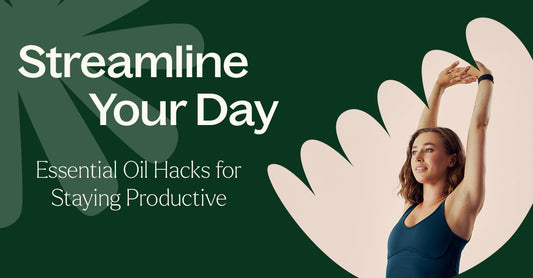By: Christina Smith, Certified Aromatherapist
It’s pollen season! Be sure to check out parts One, Two, and Three of our informative pollen series. Dealing with the stuffy nose, watery eyes and scratchy throat related to the seasonal bother is just about the last thing that anyone wants. Using over-the-counter medication is an option but usually comes with a hefty list of side effects. Some of those include drowsiness, dizziness, constipation, upset stomach, blurred vision or dryness of mouth and throat.

Why do seasonal allergies affect you? An allergen (usually pollen) triggers an inflammatory response in the mucus membranes of the eyes and nose. This typically results in sneezing, itchy and water eyes, inflammation of nasal passages, and increased mucus production. Between 10 and 25% of the population are affected by seasonal allergies.
Many essential oils provide relieving and soothing properties. These oils include German Chamomile, Fir Needle, Geranium Bourbon, Helichrysum Italicum, Lavender, Palmarosa, Blue Tansy and Tea Tree. The oils listed are all safe for use with children, which is great if you have kids and want to diffuse them in your home. The soothing properties of these oils suggest they would be useful for the misery that can be caused by inhaling too much pollen. Oils can provide support to the respiratory system by reducing swelling and open nasal passages. A few can even reduce congestion due to expectorant properties. Here are a few ways you can deal with your pollen misery in a more natural way, with fewer side effects.
For use throughout your home:
Try using Clear Again or KidSafe Sneezy Stop in your diffuser. 6-8 drops diffused for about 60 minutes will provide your entire household with not only a pleasant scent but also the helpful benefits that are present in this synergy blend.
On-the-go relief:
Personal inhalers are great little tools that you can keep in your pocket or purse. They go almost anywhere and last for 3-4 months once you’ve made them. After that, they only need to be refreshed with a few additional drops. Perfect for pollen season! To make a personal inhaler, you need the following supplies:
Empty Personal inhalers, with cotton wicks
A selection of essential oils: Helichrysum Italicum, German Chamomile, Fir Needle, Palmarosa, Blue Tansy, and Lavender.
For your first inhaler:
1. Place the wick in a small glass dish
2. Drop 3 drops Helichrysum, 3 Drops German Chamomile and 8 drops of Fir Needle onto it.
3. Gently roll wick through the oil, absorbing it all.
4. Place the wick into the inhaler and snap the end cap into place.
For the second inhaler, repeat steps 1-4 above with this recipe:
4 drops Blue Tansy, 6 drops Palmarosa, and 5 drops Lavender.
To use; twist the cap off and inhale deeply. Use as often as needed to reduce symptoms. With these suggestions, you’ll hopefully find relief from your pollen induced symptoms and be able to get out and enjoy the change of seasons!









